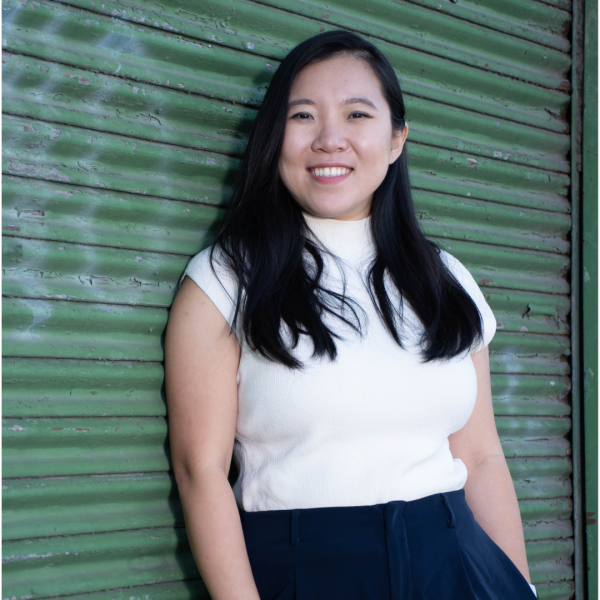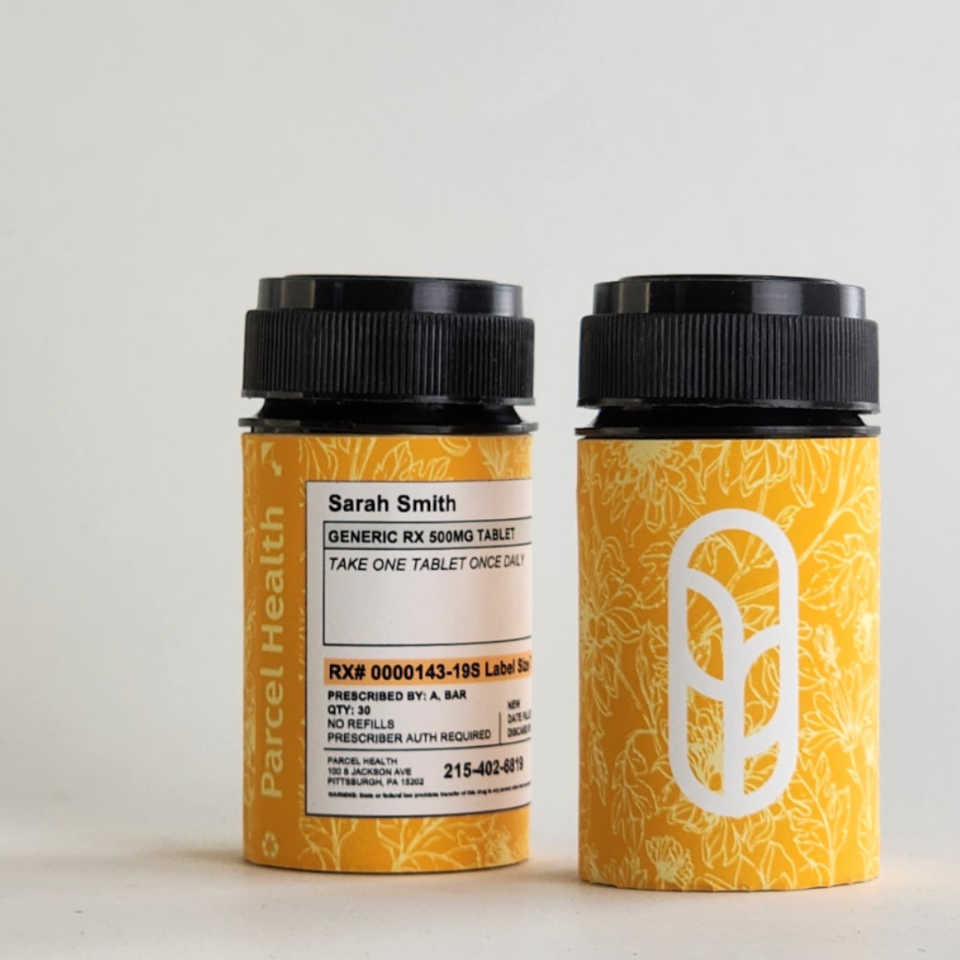PharmD Alum Donning Maize and Blue, but Committed to Being “Green”
November 11, 2024
By: Markie Heideman, Content Marketing Manager
 Each year, approximately 6.3 billion prescriptions are filled in the United States – helping patients manage pain, symptoms and even saving lives. When Melinda Su-En Lee, PharmD ‘21, started her journey at the U-M College of Pharmacy, she was passionate about contributing to this life-saving work, never expecting her purpose to shift from what’s inside the prescription bottle, to the actual vessel it comes in.
Each year, approximately 6.3 billion prescriptions are filled in the United States – helping patients manage pain, symptoms and even saving lives. When Melinda Su-En Lee, PharmD ‘21, started her journey at the U-M College of Pharmacy, she was passionate about contributing to this life-saving work, never expecting her purpose to shift from what’s inside the prescription bottle, to the actual vessel it comes in.
Now picture 97% of those 6.3 billion orange pill bottles ending up in landfills around the world. As Dr. Lee began her work in a retail pharmacy, that’s all she kept envisioning – especially growing up in Malaysia, where the US had made regular practice of shipping its plastic waste for years.
“During my second year in pharmacy school, I was on an IPPE rotation. I was so bothered by the amount of plastic bottles being dispensed, but kept to myself about it until I overheard a patient complaining about how much plastic she received from just pill bottles. At that moment, a tiny spark began to ignite.”
Uncertain on how to explore the idea, Dr. Lee was met with a sign – literally.
“I was rushing to class one morning, and I saw a poster for optiMize, a University organization that offers funding for self-directed projects.” Dr. Lee did not win the optiMize pitch competition but being part of the program encouraged her to seek a cofounder. She eventually met Mallory Barrett, a product designer who lived out in Richmond, Virginia at the time.
Determined not to give up, both cofounders started working hard on the idea and pitched to the flagship entrepreneurship prize at the Ross School of Business.
“We were shocked when we won first place. We won in all three categories: the Siegel Impact Track, the OneMagnify Best in Business, and the student-voted Michigan Investment Challenge prize. We walked away with $22,000 and that was the start of it all.”
It wasn’t just the judges at Ross that believed in her idea. Dr. Lee said she had a community of support behind her at the College of Pharmacy. Sharing her idea with faculty members, Lee built quite a buzz around her passion to make those orange bottles a little (or, a lot) more green.
“Toward the end of my time in the College, I was nervous to take an alternative route and was leaning toward a career in clinical pharmacy. I was prepared to apply for a residency. I had a close mentor who encouraged me to think very hard about that decision because they thought I would excel at entrepreneurship. That faculty member really helped push me to take the leap,” Lee explained. “That’s really the cool thing about the College of Pharmacy. They emphasize the new places pharmacists can go and encourage us to at least think outside the traditional box.”
Dr. Lee found early support in the College’s Leadership Scholar Program (LSP), of which she was the 2019 Joseph D. Williams Scholar. As part of the LSP program, she met Dr. Jim Stevenson, Professor Emeritus at University of Michigan College of Pharmacy and connected over entrepreneurship in pharmacy. Dr. Stevenson served as an early advisor for Parcel Health, helping the company navigate regulatory compliance and pharmacy automation considerations. Today, Dr. Stevenson continues to serve as an advisor to Parcel Health.
 Following graduation, Dr. Lee briefly worked as a specialty pharmacist while fundraising for her business. In November 2021, Parcel Health® received a $100,000 investment from Pittsburgh-based Innovation Works and Allegheny Health Network. Today, the company has partnering pharmacies in 25 states and Canada, and have already displaced more than 200,000 plastic vials from entering the waste stream.
Following graduation, Dr. Lee briefly worked as a specialty pharmacist while fundraising for her business. In November 2021, Parcel Health® received a $100,000 investment from Pittsburgh-based Innovation Works and Allegheny Health Network. Today, the company has partnering pharmacies in 25 states and Canada, and have already displaced more than 200,000 plastic vials from entering the waste stream.
Dr. Lee, serving as co-founder and CEO, and Ms. Barrett, as President, brought in a team of designers to work collaboratively to create a 100% paper, 100% compostable pill container called “Phill Box®.” This container takes less than 60 days to biodegrade, compared to the centuries it takes for your run-of-the-mill orange pill bottle to break down.
Their most recent product launch, Tully Tube™ looks just like a pill bottle but is made of primarily of paper. It’s the first and only paper-based pill bottle on the market. It is child-resistant and USP-compliant for water- and humidity-resistance.
“It’s exciting because this is the first time pharmacies have a viable route to replace plastic bottles at scale without compromising on safety or efficiency,” said Dr.Lee.
The company aims to displace over a million plastic pill bottles by mid-2025, and as of the date of this publication, has raised approximately $900,000 in funding.
Dr. Lee credits her PharmD for getting her foot in the necessary boardrooms to make this happen.
“Subject matter expertise matters. I understand pharmacy regulation and bring credibility to the room when we are meeting with potential investors. Pharmacists give me the time of day when they see a fellow PharmD reaching out to them.”
Most Recent Stories
PharmD Alum Goes Beyond the Beaten Path to Build a Successful Career
April 22, 2025
Dr. Kristen will bring her “Go Blue” spirit to the stage of PharmD Commencement as the keynote speaker – something she considers a great honor.
Leaning into Leadership: An Alum’s Journey to Pharmacy Administration
April 15, 2025
When it comes to pharmacy, Michelle Azar, PharmD ’21, is sure about one thing: Your path can change, and there are limitless avenues you can take with a PharmD.
Building Specialized Pharmacy Services from the Ground Up
March 28, 2025
“I never dreaded getting up and going to work. I loved what I did. When things changed, I looked at it as an opportunity or a challenge.”